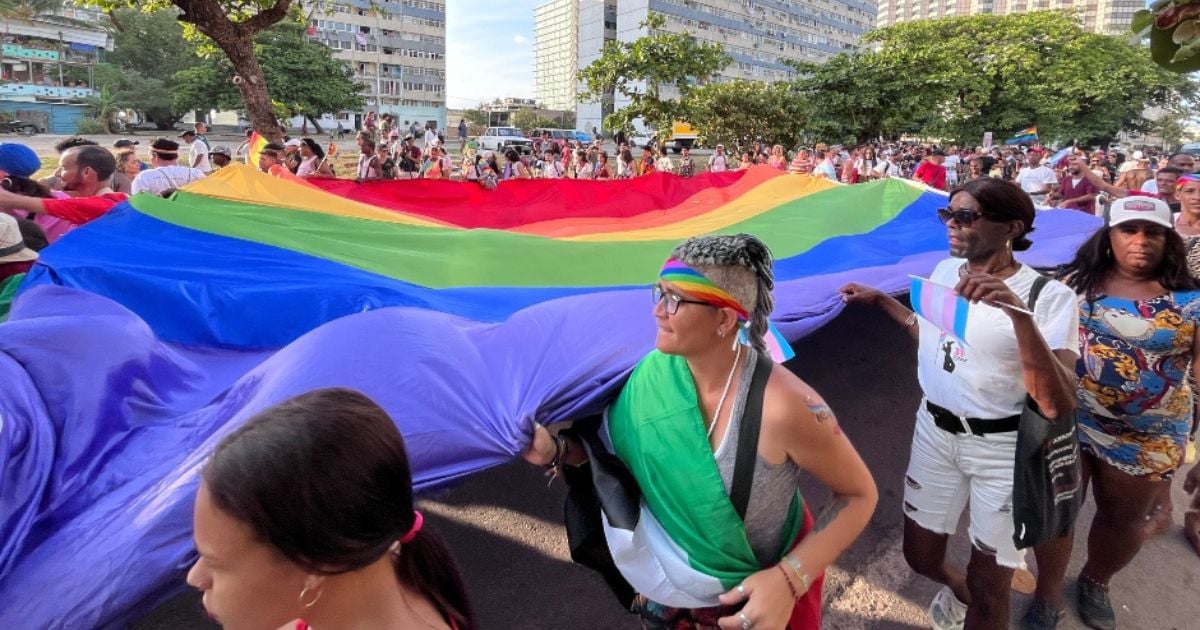In Havana this past Saturday, advocates for sexual diversity, community leaders, and representatives from various institutions came together for a vibrant conga line as part of the Cuban Days Against Homophobia and Transphobia. This event, heavily influenced by the government's agenda, was attended by several hundred participants near the iconic Malecón, with Mariela Castro Espín, director of the National Center for Sexual Education (CENESEX) and daughter of Raúl Castro, leading the procession.
Participants carried banners with slogans such as "Socialism yes, transphobia no" and "Cuba is love," clearly aiming to align LGBTIQ+ rights with the nation's political ideology. This event comes shortly before the National Assembly of People’s Power is set to discuss a new Civil Registry Law. According to reports, the proposed legislation would allow individuals to change their gender on official documents based on self-identification, without requiring gender reassignment surgery or a court order.
If passed, this law would signify a legal advancement in Cuba, building on the Family Code approved in 2022, which legalized same-sex marriage and recognized diverse family structures. However, trans activists and Mariela Castro herself have noted that the proposed legislation continues to uphold a male/female binary and does not include non-binary identities, highlighting significant shortcomings.
Moreover, gender reassignment surgeries within the public healthcare system have been halted due to resource shortages, limiting the practical implementation of these recognized rights. Castro Espín commented before the march that updating certain laws, such as the Civil Registry Law, is necessary to reflect constitutional changes accurately.
The march is part of an annual series organized by CENESEX, continuing until May 18th. Despite the lively music and colorful atmosphere, the ongoing economic crisis, state control over public demonstrations, and unresolved legal restrictions cast a shadow over the true impact of these public expressions for the LGBTIQ+ community in Cuba.
In the 2023 edition, Mariela Castro Espín, joined by Lis Cuesta Peraza, led the conga against homophobia, marking it as an official celebration backed by the regime. This event also saw participation from members of the Cuban Communist Party, government officials from Havana, and Public Health Ministry representatives. Critics point out the irony of those who historically oppressed the LGBTIQ+ community now presenting themselves as champions of inclusivity, without addressing past injustices.
In contrast, the government's reaction in 2019 to an independently organized peaceful LGBTI+ demonstration was starkly different. That year, after the official conga was canceled, activists arranged an alternative march. The Cuban State Security and police responded with arbitrary arrests and force against those attempting to march along Havana’s Paseo del Prado.
Key Questions About LGBTIQ+ Rights and Legislation in Cuba
What changes does the proposed Civil Registry Law introduce?
The proposed Civil Registry Law would allow individuals to change their gender on official documents based on self-identification, eliminating the need for gender reassignment surgery or a court order.
What are the criticisms of the new legislation by trans activists?
Trans activists criticize the legislation for maintaining a binary gender framework and excluding non-binary identities, indicating that it does not fully address the needs of the LGBTIQ+ community.
How did the government respond to independent LGBTI+ activism in 2019?
In 2019, after the cancellation of the official conga, independent LGBTI+ activists organized a peaceful march which was met with force and arbitrary arrests by Cuban State Security and police.
